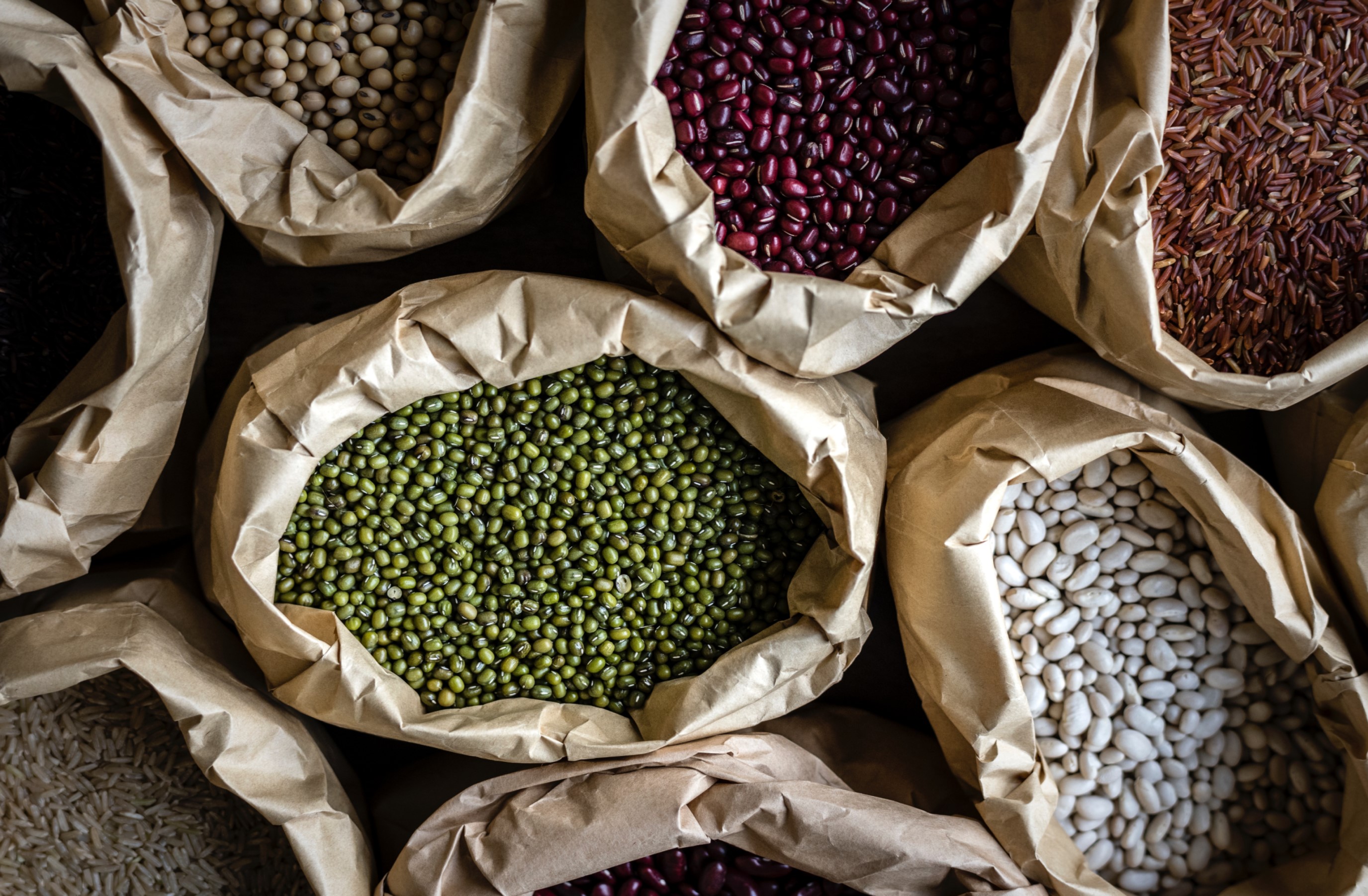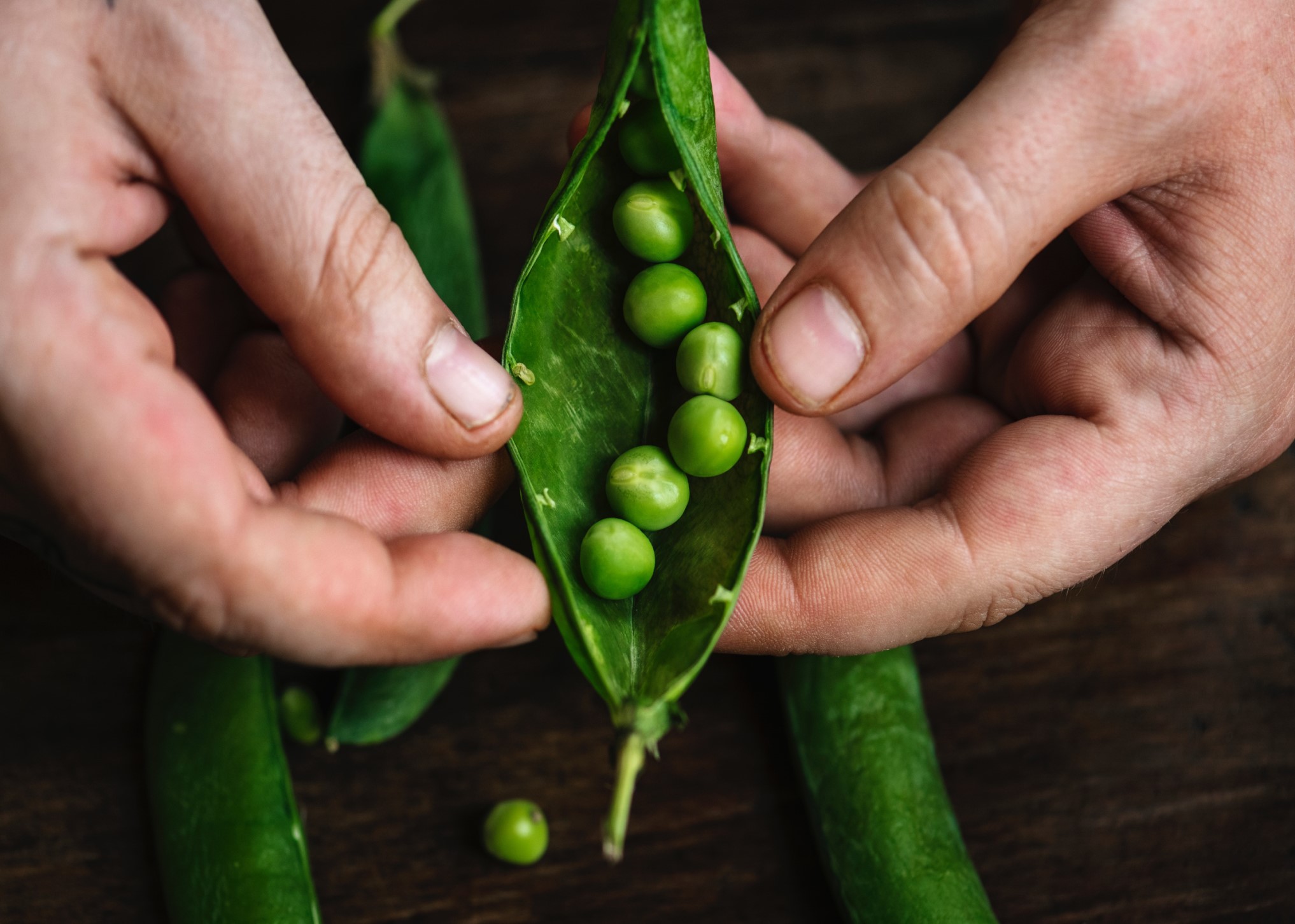
Should I eat legumes if a have tummy issues?
Legumes including all kinds of beans and peas can be really problematic for people with a sensitive gut. On the other hand, the health benefits of legumes are well documented. Legumes are low in fat, have a low GI index, are high in fiber and contain a variety of phytochemicals. Phytochemicals may decrease the risk of various diseases including certain cancers, diabetes, hypertension and heart disease by acting as antioxidants and nutrient protectors or by preventing cancer-causing agents from forming. So, it is very important to try to incorporate legumes in our diets in various quantities, cooking and processing methods.
Should I soak my dried legumes (pulses)?
Only very small amounts of dried pulses are allowed during the elimination diet but do not need to be strictly avoided by people following a low FODMAP diet.
Soaking dried legumes is absolutely necessary as the processes of soaking and draining (or cooking and draining) reduce the FODMAP content. Legumes are naturally high in oligosaccharides, including galacto-oligosaccharides (GOS) and fructans that need to be reduced in people following the low FODMAP diet. Oligosaccharides dissolve in water and leach out of the legumes into the water, so cooking, canning and processing methods can decrease the amount of these FODMAPs in legumes.
Should I sprout my foods? Are sprouted foods healthier than non-sprouted foods?
Sprouting involves periodically soaking, draining and then rinsing the seeds, legumes or grains until they germinate or sprout.
Very little research has been performed on whether sprouted foods are more beneficial than non-sprouted ones. It is complicated to compare different products when one has to take into account varying ingredient contents and both processing and production methods, which may ultimately change the food’s nutritional value.
While we cannot really say whether sprouted foods are healthier than non-sprouted foods, there are few studies that show an enhancement in the nutritional value of grains and legumes through this by increasing protein concentration, digestibility and the amounts of disease-fighting antioxidants. Sprouting can also cause a reduction in antinutrients such as phytic acid, lectins and protease inhibitors that are especially concentrated in grains and legumes and can be problematic in people with a sensitive gut. The reduction in antinutrients can make important minerals such as iron, zinc, calcium, magnesium and manganese more bioavailable.
Can sprouting affect the FODMAP content of foods?
This answer comes straight from Monash University where they have tested the following foods: wheat grain, barley grain, rye grain, chickpeas, red kidney beans and mung beans.
They found that sprouting decreases FODMAP content in these foods, with the exception of chickpeas where the FODMAP content was slightly increased.
The reduction in FODMAP content of mung beans and barley was sufficient to change their rating from red to green on the Monash app (and thus obtain a safe serving rating for somebody following the low FODMAP diet). Sprouting can thus affect FODMAP content of foods, and we advise checking the Monash app to choose the right amount for each food. Furthermore, our advice is to test your tolerance by trying a small amount of each of these foods and monitoring your symptoms.
Safe sprouting
Sprouting may carry the risk of contamination with salmonella, E. coli, listeria, or other bacteria due to the warm, humid conditions.
Bacteria can enter the seeds prior to sprouting and they are practically impossible to eliminate. Homegrown sprouts can also be dangerous if consumed without being cooked. Regardless of your level of cleanliness, these harmful bacteria can develop during the sprouting process.
To reduce this risk, the FDA offers the following advice:
• Avoid eating raw sprouts of any kind (including alfalfa, clover, radish, and mung bean).
• Cook sprouts thoroughly. This significantly reduces the risk of illness.
• Check sandwiches and salads purchased at restaurants and delicatessens. They may often contain raw sprouts. Request that raw sprouts not be added to your food.
• Refrigerate sprouts you buy.
Should I activate nuts before consuming them?
Eating large amounts of raw nuts may place an extra strain on your digestive system. Hence, it may be worthwhile to activate nuts. Activated nuts have been soaked in water and salt for a certain amount of time, thus initiating germination or sprouting, and are then dehydrated at a low temperature (about 65°C) for 12-24 hours before consumption.
Activation may improve nutrient absorption and digestion by reducing antinutrients and enzyme inhibitors. By binding minerals such as calcium and iron, antinutrients may make it more difficult for your gut to absorb them. However, antinutrients are not necessarily bad as they play an important role as antioxidants and anti-inflammatories. Keep in mind that when it comes to the way our body absorbs nutrients, we have to consider the food combination rather than a single food.
We advise that, if you have a sensitive gut, you can try activated nuts, as antinutrients and enzyme inhibitors can make the food harder to digest. Try activated nuts in small quantities and test your tolerance and symptoms.
References
Singh AK, Rehal J, Kaur A, Jyot G. (2015) Enhancement of attributes of cereals by germination and fermentation: a review. Crit Rev Food Sci Nutr; 55(11):1575-89.
Devi CB, Kushwaha A, Kumar A. (2015) Sprouting characteristics and associated changes in nutritional composition of cowpea (Vigna unguiculata)J Food Sci Technol; 52(10): 6821–6827.
Zhang G, Xu Z, Gao Y, Huang X, Zou Y, Yang T. (2015) Effects of germination on the nutritional properties, phenolic profiles, and antioxidant activities of buckwheat. J Food Sci; 80(5):H1111-9.
Luo Y, Xie W, Luo F. (2012) Effect of several germination treatments on phosphatases activities and degradation of phytate in faba bean (Vicia faba L.) and azuki bean (Vigna angularis L.). J Food Sci; 77(10):C1023-9.
Savelkoul FH, Tamminga S, Leenaars PP, Schering J, Ter Maat DW (1994) The degradation of lectins, phaseolin and trypsin inhibitors during germination of white kidney beans, Phaseolus vulgaris L. Plant Foods Hum Nutr; 45(3):213-22.
Gupta RK, Gangoliya SS, Singh NK. (2015) Reduction of phytic acid and enhancement of bioavailable micronutrients in food grains. J Food Sci Technol; 52(2):676–684.
https://www.monashfodmap.com/blog/sprouting-does-it-reduce-fodmap-content/
https://www.foodsafety.gov/keep/types/fruits/sprouts.html



